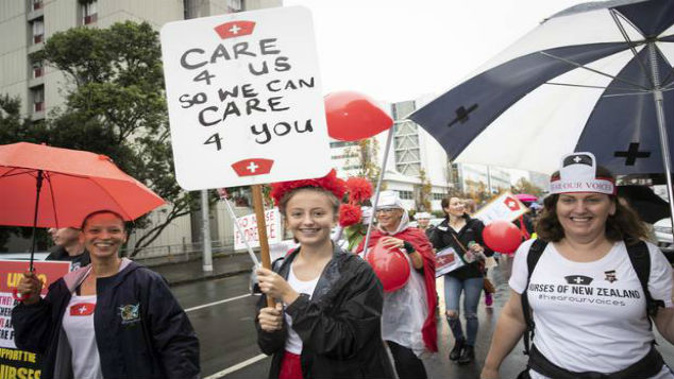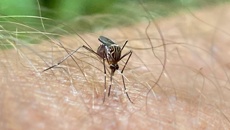
Around 27,000 nurses, midwives and healthcare assistants have voted to strike for two full days if their district health board bosses do not present them with an acceptable pay offer today.
The strikes, if they go ahead, will take place in July when health services will be stretched already dealing with an expected spike in flu cases, according to at least one DHB.
Life-preserving services are still to be negotiated with DHBs but the nurse’s union said it was not a decision taken lightly, and patient safety was paramount.
The New Zealand Nurses Organisation ballot of its 27,000 members has come back in favour of a total withdrawal of labour for 24 hours from 7am on July 5, and again from 7am on July 13.
New Zealand Nurses Organisation (NZNO) industrial services manager Cee Payne said it expected a revised offer today from DHBs to settle their Multi Employer Collective Agreement (Meca).
Two earlier offers have already been rejected and if the latest is also given the thumbs down, nurses will give notice of the strike action.
"If members vote to reject any improved DHB offer, the members' next course of action would be industrial action," Payne said.
"The industrial action vote, being a strong vote and a high turnout has really clearly signalled that our members are serious. They are wanting a resolution of their issues," she said.
The offer is expected this afternoon.
"It's a wait and see. It's a lot of weight on their shoulders to improve what the panel said, if they've been listening. It's important that the DHBs make an offer that they have thought about themselves, that they have constructed hearing some of the feedback that we've been giving in the media in the last week and that they take it on board," Payne said.
Payne agreed the proposed dates for strike action were a busy time for hospitals.
"We'll be working really hard with the DHBs to define what we both understand what life-preserving services are and what that expectation is regarding our members. The DHBs are already working on their plans and we'll be having further conversations with them around national and local DHB plans for life-preserving services. Obviously it's not an excuse to just make up numbers and say 'these nurses have to stay behind'. Nurses have the right to strike."
NZNO chief executive Memo Musa said patient safety was paramount. "We will be compliant with the Code of Good Faith for the public health sector. This is a very difficult decision for members and is not taken lightly."
Counties Manukau DHB has already warned Health Minister David Clark it will struggle to cope with this year's winter flu cases, saying Middlemore Hospital spent much of last winter with an occupancy rate of up to 170 per cent.
An independent panel set up at Prime Minister Jacinda Ardern's request to resolve the impasse between nurses and DHBs, last week recommended a 3 per cent pay rise from June, another 3 per cent in August, and again in August next year to cover the cost of living, as well as a one-off $2000 payment to avoid strike action.
It also recommended a 2 per cent increase boost in nursing staff – around 600 - to relieve workload pressures.
Payne said the recommendations on pay fell short of addressing the union's concerns.
Members would want to see a "significantly improved" offer from DHBs which addressed core issues of staffing, pay and working conditions, she said.
The last pay offer by DHBs in April was 2 per cent over two years and a lump sum of $1050.
NZNO has said that it would prefer to settle with DHBs than to strike. But it says its members are dealing with an ageing and increasingly sick population, and staff are stretched because of a decade of underfunding of the health system.
Any pay increase will likely require more funding from the Government. Budget 2018 included contingency funding for health sector pay rises. There was also $100m over four years to lift community midwives' pay.
The independent panel comprises former Whanganui District Health Board chief executive Julie Patterson, former Labour government minister and attorney-general Margaret Wilson and former NZNO chief executive Geoff Annals.
Take your Radio, Podcasts and Music with you









